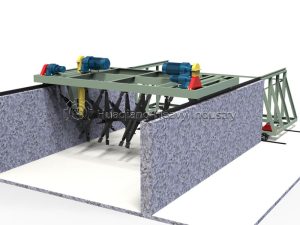The Science of Organic Fertilizer Fermentation
Organic fertilizer fermentation is a complex biological transformation process that converts macromolecular substances in organic raw materials into small molecular nutrients absorbable by plants through microbial action. This process not only provides essential nutrition for crops but also effectively eliminates pathogens, insect eggs, and weed seeds, achieving harmless treatment and resource utilization of organic waste.
Successful organic fertilizer fermentation requires precise control of four key elements: carbon-to-nitrogen ratio, moisture content, oxygen supply, and temperature. The balance of these factors directly affects fermentation efficiency and final product quality.

Key Stages of the Fermentation Process
Temperature Rise Phase
During the first 3-7 days of fermentation, mesophilic microorganisms become active and begin decomposing easily degradable substances. The pile temperature gradually rises from ambient temperature to 55°C. Successful initiation of this phase is fundamental to subsequent fermentation progress.
High Temperature Phase
In the 10-20 day high-temperature period, thermophilic microorganisms dominate, maintaining temperatures between 55-65°C. This stage is crucial for eliminating harmful organisms and requires ensuring high temperatures persist for sufficient duration.
Cooling and Maturation Phase
As easily degradable substances are consumed, temperatures gradually decrease, and the microbial community shifts back to mesophilic bacteria. This phase primarily completes the decomposition of hard-to-degrade substances and humus formation, ultimately yielding stable organic fertilizer.

Composting Methods in Organic Agriculture
Static Composting Method
Oxygen is provided through pre-buried ventilation pipes without requiring turning, making it suitable for large-scale production. This method offers simple operation and low labor costs but requires precise ventilation control to avoid oxygen deficiency.
Dynamic Composting Method
Regular turning forcibly supplements oxygen, accelerating the maturation process. This method features fast fermentation speed and high compost uniformity, making it one of the most widely used technologies in organic agriculture.
Vermicomposting Method
Utilizes earthworm digestion to decompose organic raw materials, featuring low fermentation temperatures, no odor, and high nutrient content in the product. This method is particularly suitable for processing kitchen waste and garden waste.

Quality Control and Environmental Requirements
Organic agricultural composting must adhere to strict quality standards and environmental requirements. The fermentation process needs to ensure thorough harmless treatment while avoiding any chemical additives. Meanwhile, large-scale production requires necessary environmental protection facilities to prevent odor diffusion and wastewater discharge.
High-quality organic fertilizer should appear dark brown, possess an earthy fragrance, and have a loose, easily crumbled texture. Through scientific fermentation processes and strict quality control, organic fertilizers can not only provide comprehensive nutrition for crops but also effectively improve soil structure, promoting sustainable agricultural development.
Modern Equipment for Efficient Organic Fertilizer Production
The science of organic fertilizer fermentation has evolved significantly with advanced machinery that optimizes the fermentation composting technology for organic fertilizer. Modern fertilizer production machine systems have transformed traditional Windrow composting into highly efficient processes.
Key equipment like the trough-type compost turner and hydraulic trough compost turner enable precise control over the organic fertilizer fermentation process, while chain compost turning machine technology ensures thorough aeration. For larger operations, large wheel compost turner and windrow compost turner machines handle massive volumes efficiently.
The complete bio organic fertilizer production line integrates multiple fertilizer making machine units including disc granulator for shaping, rotary drum granulator for uniform pellets, and drum organic fertilizer dryer for moisture control. This disc granulation production line approach represents the full suite of equipments required for biofertilizer production, transforming raw organic matter into valuable fertilizer through sophisticated fermentation composting turning technology.
These technological advancements ensure that organic fertilizer production meets both quality standards and environmental requirements, supporting sustainable agriculture through efficient resource utilization.